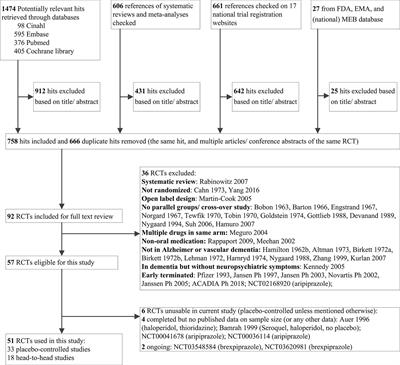EDITORIAL
Published on 15 Jun 2021
Editorial: Pharmacology of BPSD (Behavioral and Psychological Symptoms of Dementia)

doi 10.3389/fphar.2021.704421
- 2,476 views
- 2 citations
84k
Total downloads
358k
Total views and downloads
Select the journal/section where you want your idea to be submitted:
EDITORIAL
Published on 15 Jun 2021

REVIEW
Published on 31 Jul 2020

REVIEW
Published on 16 Jun 2020

ORIGINAL RESEARCH
Published on 21 May 2020

REVIEW
Published on 20 May 2020

BRIEF RESEARCH REPORT
Published on 08 May 2020

REVIEW
Published on 13 Mar 2020
CORRECTION
Published on 06 Mar 2020
MINI REVIEW
Published on 26 Feb 2020

ORIGINAL RESEARCH
Published on 21 Feb 2020

ORIGINAL RESEARCH
Published on 14 Feb 2020

SYSTEMATIC REVIEW
Published on 07 Feb 2020


Frontiers in Neuroscience